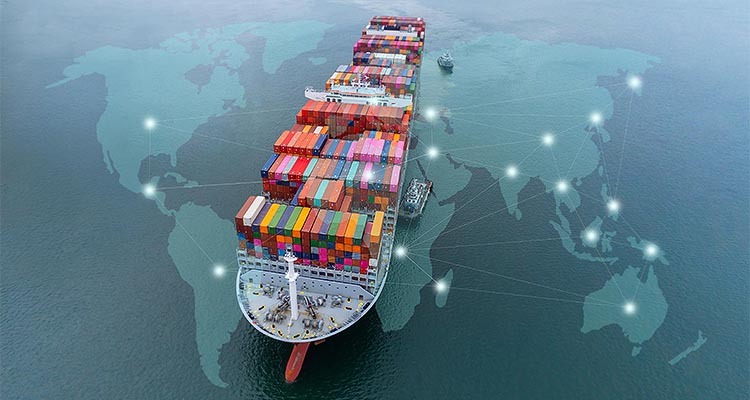
According to Marco Forgione, 2024 marks a new and exciting chapter for international trade
After a tumultuous end to 2023, with the impact of shipping delays across the Panama and Suez Canals disrupting supply chains around the world, 2024 is also set to be a memorable year in international trade. In fact, the year ahead will be one of the most transformational we have seen for quite some time for businesses trading internationally.

Readers of this title will know the extent to which international trade is a constantly changing landscape. Most people pay little attention to how food finds its way to their local supermarket, or how online purchases arrive on our doorstep the day after we order them. But for the world we know behind this – the complex, interconnecting global supply chain behind these seamless movements – there are seismic changes underway.
Modernization is long overdue
These changes are much needed. In many ways, international trade is still conducted as it was in the 1700s, with documentation requiring a wet signature to cross borders. But today, digitalization and smart technologies give us the chance to replace these manual processes that underpin how business is conducted.
In the UK, where my organization was formed, these changes have become even more pronounced in recent years. In 2020, the UK Government published an ambitious vision, outlining principles for the UK border to become one of the most effective in the world. The Border Target Operating Model (BTOM) brings a new, digital process-based approach to trade that will lead to stronger security and biosecurity, combined with lower-friction borders.
BTOM is being progressively introduced now. The process started last month in January 2024, and imposes a number of new checks on certain EU imports coming into the UK, including food and beverage products for the first time since Brexit.
The guidelines and procedures outlined by BTOM are designed to manage the flow of goods across the UK border efficiently and effectively. Its successful implementation is set to lead to smoother and more resilient international trade processes that will benefit both exporting and importing businesses, as well as the economy more widely.
Businesses everywhere need to understand the changes
The impact of BTOM means that businesses looking to export a wide range of products to the UK will have to go through strict customs controls and use a new electronic system to make their customs declarations. Although these updates to policy are set to improve the efficiency of trading, it is vitally important that businesses everywhere are supported in understanding new procedures.
Any bumps in the road with this new policy could mean that we see delays in supplies from the everyday items on supermarket shelves to the critical minerals and other components that are vital in high-tech and green industries. This is why it is vital that businesses both in the UK and overseas take the time to prepare and inspect the potential impacts of these checks to ensure limited disruption, as it is likely these new procedures will take some bedding in time. That includes businesses around the world, who may have European operations that do business with the UK.

Beyond BTOM, there will be many more new measures coming into force in 2024 that will impact the UK and our overseas trading partners in the EU and beyond. From CDS, which will replace legacy system, Customs Handling of Import Export Freight (CHIEF), coming into force in March, to ENS declarations becoming mandatory for movements arriving from the EU from October, these will have a profound change on how the UK trades with the rest of the world.
Businesses need support to adapt successfully
This raft of developments will usher in much needed changes, including the digitalization of trade and cutting of red tape, ultimately making international trade easier and more lucrative in the long run. But to make the process as frictionless as possible, we must prioritize education and hands-on support for businesses in the UK and those we trade with around the world if we are to ensure they are a success.
Our focus is on supporting businesses both in the UK and around the world to understand the requirements of these new rules and regulations. This includes training as well as practical assistance. After all, the way the UK trades and interacts with the world is being reimagined. Decisions will need to be taken now to ensure we all benefit from future developments and innovations in global trade.
The digitalization of UK trade has the potential to add £25 billion to the country’s GDP. But the wider benefits for the global business community, if we can ensure more frictionless international trade with the world’s sixth biggest economy, are substantial.
For a list of the sources used in this article, please contact the editor.
Marco Forgione is Director General of The Institute of Export & International Trade. He oversees all activity including supporting both businesses and individuals trading internationally, as well as working to enhance the UK’s export performance. Marco is an organizational development specialist with a proven track record leading B2B trade bodies through periods of regulatory and market change.